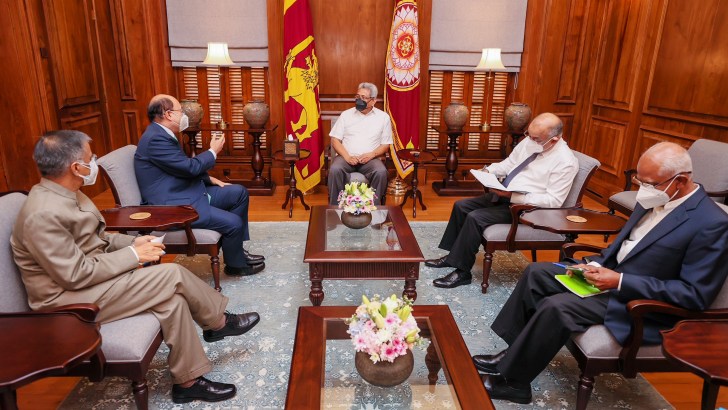
Speaking with Indian Foreign Secretary, Shri Harsha Vardhan Shringla, Sri Lankan president Gotabaya Rajapaksa stressed his desire for the Indian ocean to remain a "zone of peace" last week, invoking the 1971 proposal by former Sri Lankan Prime Minister Sirimavo Bandaranaike, as he called for closer ties with New Delhi.
This statement follows growing concern in India over reported growing Chinese aggression and its expanding geopolitical influence in the Indian ocean. Last week also saw Indian and Sri Lankan army personal performing joint military exercises in Amparai. India's "Neighbourhood First" policy seeks to strengthen military ties with Sri Lanka and has facilitated the visit of 39 Sri Lankan military officers to New Delhi.
This comes despite significant concerns over human rights and war crimes allegations against Sri Lanka's military.
Rajapaksa reportedly spoke of his experiences of the armed conflict, including what he deemed "liberating the Jaffna Fort", which continues to be occupied by the Sri Lankan military. An official press release said Rajapaksa "is well aware about the consequences of a war including the missing persons as well as regarding the widowhood caused by the war," as thousands of Tamils continue to remain missing and disappeared. Yet Rajapaksa claimed the families of the missing persons "are being compensated and the President explained the need to expedite the resolution of other issues that have arisen during the war" whilst also claiming that "more than 90% of the lands acquired during the war for security purposes have been released by now".
During his visit, the Indian Foreign Secretary also met with representatives of the Tamil National Alliance (TNA) and the Ceylon Workers Congress (CWC) during which he reaffirmed "India's commitment to protecting the rights of Tamils through full implementation of the 13th amendment". These concerns were reportedly also raised in meetings with Sri Lanka's President.
Commenting on the geopolitical threat China posed, P.K. Balachandran highlights the rise of China as a great maritime power during the second decade of this century. This has, he notes, "changed the balance of power in the Indian Ocean Region (IOR) to the detriment of the Western powers and their allies".
Responding to this threat India has ramped up its naval presence in the Indian Ocean including in countries such as the Maldives and Sri Lanka. India is also a member of the US-backed Quadrilateral Security Dialogue Alliance (QUAD). QUAD is an informal forum between the US, Japan, Australia, and India which conducts semi-regular summits, information exchanges and conducts military drills with member countries.
Whilst reassuring India's Foreign Secretary that Sri Lanka would not be used for any activity that could pose a threat to India’s security, the government appears reluctant to alienate its allies in Beijing.
Commenting on the QUAD alliance, Sri Lanka's Foreign Secretary and accused war criminal, Jayanath Colombage, has expressed scepticism stating:
“Do we really need a QUAD? Will QUAD not give rise – not to a cold war – but at least a cool war in the Indian ocean?”
During the meeting, Rajapaksa further claimed that he would find an amenable solution to the Trincomalee Oil Tanks in the East in a way that would benefit both India and Sri Lanka.
